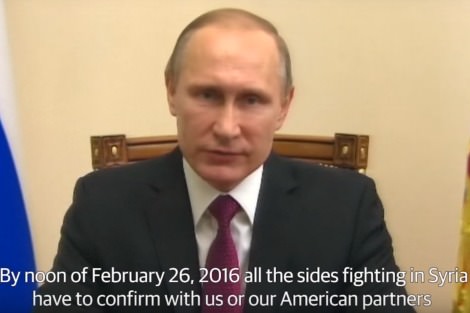Keywords: Lent
There are more than 200 results, only the first 200 are displayed here.
-

AUSTRALIA
- Fatima Measham
- 05 September 2016
5 Comments
Unless feminism abandons its individualistic, secular, western framing of freedom, it cannot presume to liberate all women. Some of its recent concerns give away limitations: whether this politician identifies as feminist, whether child-raising is self-sabotage, whether women abandon autonomy when they take their husband's name. I wonder sometimes whether it is ever possible to talk about sexual exploitation of women in Asia without getting entangled in sex positivity and legal sex work.
READ MORE 
-

AUSTRALIA
- Kate Galloway
- 26 August 2016
15 Comments
Oliver Twist is still used to aid understanding of the trauma arising from poverty, and the suffering of children at the hands of individuals and within institutional settings. In broader Australian society we assume Dickensian attitudes to children have evolved. Aligned with the sentiments behind child protection, society's image of children and childhood is idyllic. Yet beneath this veneer lies a substratum of deeply ambivalent, even malevolent, attitudes towards children with a distinctly Dickensian flavour.
READ MORE 
-

AUSTRALIA
- Andrew Hamilton
- 28 July 2016
5 Comments
When confronted by violent killings we should be appalled, identify sympathetically with the victims and with those affected indirectly by these tragedies, and also take a respectful interest in the complex lives of the perpetrators and the relationships that contributed to the shootings. The pause before making larger judgments respects the complexity of motivation and of social interactions involved in the killings, and offers a base for reflecting on how we may lessen the possibility of them happening in future.
READ MORE 
-

ARTS AND CULTURE
- Tim Kroenert
- 30 June 2016
1 Comment
This strange and engrossing Italian film proffers an unsettling rumination upon the rituals of mourning, and upon a mode of grief which itself is a kind of death. It opens with a sweeping close-up of an imposing crucifix, and the fine musculature of a graven Christ. A mass of mourners is then revealed, and before them a woman, immobile and weeping silently. The camera angle cuts to calf level, to reveal a trail of urine more copious than her tears, running down her leg to her shoes.
READ MORE 
-

ARTS AND CULTURE
- Tim Kroenert
- 21 April 2016
3 Comments
Socialite and amateur operatic soprano Marguerite cuts an intriguing and tragic figure, devoted to her craft but oblivious to her lack of talent. Yet the joy she gains from believing she is a great singer doesn't depend on the reality or otherwise of that belief. Is it right or wrong for those who care for her to allow her to continue in her delusion? The question echoes the concept of a life-lie, invoked by Henrik Ibsen to argue that human beings are sometimes better off living in at least partial ignorance of reality.
READ MORE 
-

AUSTRALIA
- Andrew Hamilton
- 31 March 2016
5 Comments
The Palm Sunday Refugee Marches have come and gone; the travails of people who seek asylum continue. In a recent article that reflects her rich experience, Moira Rayner was right to say that marches are not effective in changing policy. Where they are, as in the Vietnam War marches in Australia or in Manila under Marcos, the fortress was already crumbling. Yet even when they are not effective, marches are not a waste of energy. Their value lies not in their effectiveness but in their ritual.
READ MORE 
-

AUSTRALIA
- Julie Edwards
- 30 March 2016
1 Comment
The royal commission recommends a 'blitz' on rehousing family violence victims stuck in crisis and transitional housing, as well as individualised funding packages to open up access to private rentals for people fleeing violent relationships. Important though it is, it is not enough simply to support the victims of family violence. We also need to prevent family violence from occurring. This requires a strategy for preventing family violence that involves the whole community.
READ MORE 
-

ARTS AND CULTURE
- Bill Rush, Marlene Marburg, Maureen O'Brien, John Cranmer
- 22 March 2016
3 Comments
To be fair, he wasn't a leaner, he was one of the lifters. Helped to keep the country running, so to speak, and speak he did often, on many topics. He was a leader, and felt justified when others, in the region, followed his lead. It wasn't that he didn't see Lazarus, but more that he saw him differently. Break the rules, help one starving beggar and before you know it there will be a flood of them on your door step. That's how he argued and plenty agreed. Judgement day was a long way off.
READ MORE 
-

RELIGION
- Frank Brennan
- 07 March 2016
'On his last two visits to Latin America, Pope Francis has focused on past and present relationships between indigenous peoples and their colonisers. This Jubilee Year of Mercy perhaps it could be a blessed moment for Aboriginal Australians and descendants of their colonisers to walk together through the Door of Mercy at the St Francis Xavier Cathedral, calling to mind the sins and endeavours of the past, the achievements and commitments of the present, and the hopes and aspirations of the future.' Fr Frank Brennan SJ, Lenten Talk, Norwood Parish, 3 March 2016
READ MORE
-

INTERNATIONAL
- Justin Glyn
- 25 February 2016
4 Comments
There is cause for both optimism and scepticism in the news that the US and Russia have agreed a ceasefire in Syria. On the face of it, one of the world's bloodiest civil wars is about to come to an end; an end to be guaranteed by the two biggest, best armed militaries on the planet. This should be excellent news for everybody, not least the long suffering civilian population of one of the most bombed countries on earth. So what could possibly go wrong? Well, quite a lot.
READ MORE 
-

AUSTRALIA
- Binoy Kampmark
- 24 February 2016
3 Comments
On Sunday, Immigration Minister Peter Dutton seemingly relented, allowing the child to be released into community detention rather than carting her off to Nauru. It has, however, been made clear that this is no prelude to settlement in Australia. Dutton's line goes to evenness in policy: 'We are going to have a consistency approach here ... intelligence out of Indonesia recently was that people smugglers were reporting ... there was going to be a change in policy.' None of these arguments passes muster.
READ MORE 
-

AUSTRALIA
- Andrew Hamilton
- 18 February 2016
18 Comments
It is common for people to break the law. People fail to move on when instructed by police, evade tax, drive too fast, keep silent about abuse, trespass on military facilities, and drive when drunk. Many people assert that it is never right to break a law duly enacted by the government. From this principle it follows that anyone offering sanctuary to people who seek protection in Australia is acting wrongly. This blanket condemnation of law breaking runs against our inherited moral tradition.
READ MORE 